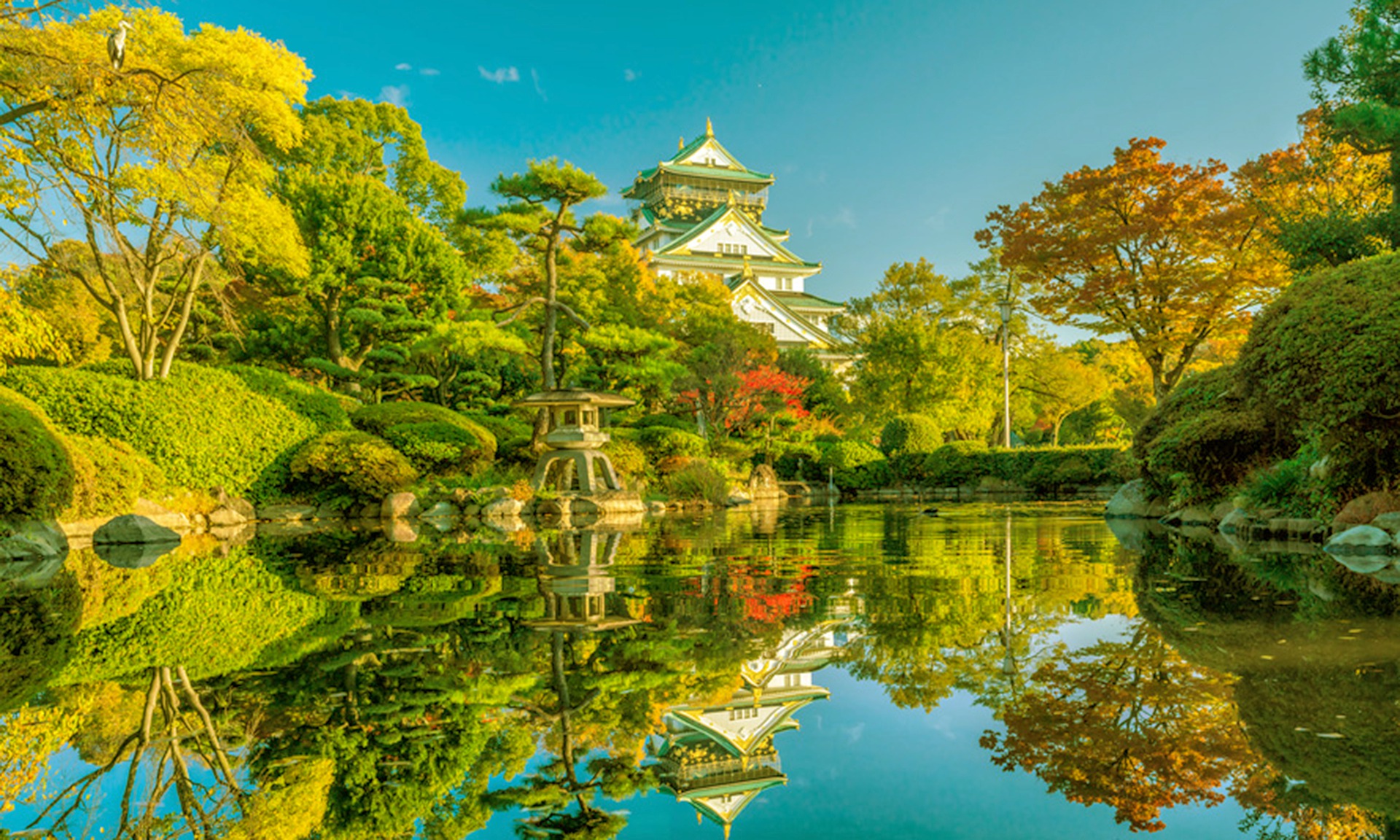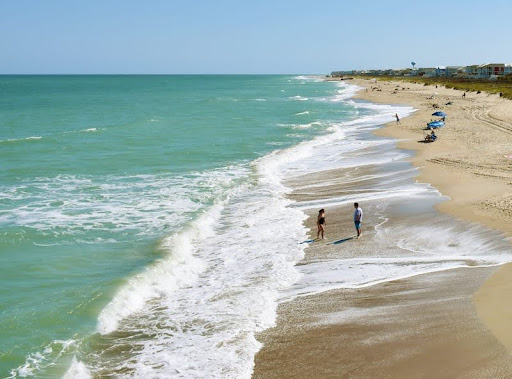The world is large and the population is ever increasing. More people mean more issues, and with that, advancement in the industrial and agricultural aspects of the countries is essential. Consequently, these countries grow their economy and start gaining more power and influence in the global arena. The richest countries in the world play the most dominant roles in politics and other factors.
Herein the question arises- what constitutes wealth? What makes a country rich and another poor? Surely, financial prosperity is a major factor, but is it really the ultimate goal?
In reality, with all the complexities of the world, the economy of a country cannot entirely decide its power or status. After all, what gives identity to these countries are its people, and thereby wealth is justified by their prosperity. The societal structure, growth in the facilities the citizens receive and the economy of these countries are all inter-related.
Table of Contents
Richest countries in the world
To properly demonstrate, the following are some of the wealthiest countries in the world. The reason for such is not based only on GDP margin or industrial affluence. Many other factors play a role as well. Read for yourself and make your judgment.
Japan
Japan is one of the top 50 richest countries in the world. Owing to its prosperity in industries such as machinery, ships, automobile, and electronic equipment manufacture- this is not surprising. When speaking of agricultural prowess, Japan is one of the largest distributors of products like poultry, fish, rice, and vegetables in the world. In 2017, the per capita GDP of this country was recorded as around $38,428. One of the key factors behind this is its huge population, which unfortunately saw a slight decline in 2018.
Indeed, when speaking of Japan as one of the richest countries in the world, it is important to mention the condition of its citizens.
On the positive side, Japan has a good standard when it comes to factors such as nutrition, basic knowledge, medical care, sanitation, etc. However, in matters of advanced education and inclusiveness, the country lags behind some of the other counties.
Canada
Despite having a huge landmass, the population of the country is not very high. However, that does not entirely damage its place as one of the richest countries in the world. The economy of this country relies heavily on its agricultural and industrial components, which results in its high GDP rank. In fact, in 2017, Canada made a per capita GDP of $45,032. The reason for such is its high profits in the industries of minerals, chemicals, and transportation equipment. Agriculture, too, is a contributing element.
The citizens of this country enjoy a lot of good quality features like personal rights and proper health benefits. Though, the more rural parts of the country do not get very high education, affecting the overall SPI rank.
Russia
When it comes to the discussion of the richest countries in the world, the huge and powerful Russia is a major entrant. It is a big player in many of the industries in the world, like energy, aerospace, aircraft and many more. Because of all this, the 2017 survey of the different countries in the world states its GDP per capita income as $10,743.
Of course, only monetary factors do not define the richness of a region. Case in point, the people of Russia enjoy various features like sanitation, clean water, basic knowledge, access to good healthcare, to name a few.
Qatar
Located in Western Asia, the State of Qatar is easily one of the top 50 richest countries in the world. While there remains confusion regarding its status as a monarchy, there is no doubt about its economic standpoint. Although many respectable industries are working in this Arabian country, its main source of income is mineral gas and oil.
Some of the industries like fertilizer and ammonia, commercial ship repair, and cement influence the GDP of the country. In the 2017 ranking, the per capita GDP that it incurred was around $63,505. However, due to various internal struggles, its social progress ranking suffered.
Luxembourg
One of the 15 richest countries in the world is Luxembourg, owing to its rich economy and societal structure. In fact, it is reportedly one of the world’s largest per capita GDP holders, recording a whopping $104,103 in 2017.
Of course, having above-par financial and banking services contributes to this phenomenon. Also, the country has great information technology, metals, real estate market, and construction industries that play a role as well.
Czech Republic
Of the top 100 richest countries in the world, the Czech Republic is a major player in the automotive industry. Of course, that is not the only thing that supplements its economy. Other industries include armaments, glass, industrial equipment and machinery, metallurgy, to name a few.
However, the GDP score of the Czech Republic is not as good as it can be, due to an average wage of $26,000- $27,000. Consequently, the GDP of the country in 2017 was around $20,368 per capita, pushing it down to a lower slot. But, when we discuss the progress and growth of the citizens, it shows the real value of the country. Thus, if we consider the SPI rank as a factor, the Czech Republic is possibly the richest country in the world.
Singapore
Have you heard the term “size doesn’t matter”? Well, there is some truth to these age-old proverbs and in the case of Singaporean economy, rightfully so!
Despite its small size, Singapore is a major economic powerhouse. With an average per capita GDP of $58,000 to $59,000, it is not difficult to refute this claim. Owing to its strategic location in the middle of a busy shipping route, this is possible. Much of the economy runs on this factor, like entrepot trade, offshore platform construction, and ship repairing. Furthermore, Singapore is one of the richest countries in the world because of other industries as well; for example, oil drilling, science, chemicals, and electronics.
Costa Rica
When it comes to the conversation of ranking countries based on their GDP, Costa Rica is worth a mention. This tiny country derives most of its economy from its agricultural medium, including melons, coffees, pineapples, and bananas. Aside from that, the country also works in the manufacture and distribution of medical equipment.
Though the average GDP per capita in the 2017 ranking was a minimal $11,630; the social conditions of its citizens help immensely in its ranking. It is one of the richest countries in the world when it comes to economic income and societal standards.
United Kingdom
Indeed, in the matter of economic growth and overall ranking among the different countries in the world, not mentioning the United Kingdom is unheard of! One of the most influential and historic countries, UK is easily one of the most successful countries in wealth and power. To be precise, some of the main industries that the UK prospers in include chemicals, communication and electronic equipment, aircraft, shipbuilding, automobile industry, and machinery.
With a recorded per capita GDP total of $39,000 and above, the UK is one of the richest countries in the world. Not only is the country industrially affluent, but also its social progress ranking is high, despite issues in education and inclusiveness.
South Korea
South Korea is an easy entrant into this list, considering its hold on both industrial and agricultural sectors of the world economy. The main industrial components behind its economic prowess include steel, shipbuilding, telecommunications, electronics, automobile production and chemical industries namely. Aside from that, its position as the richest country in the world depends on agricultural production as well, like vegetables, root crops, rice, and barley.
As per the 2017 ranking, the GDP per capita was approximately $29,740. Moreover, the SPI ranking of the country is high as well, with the government’s focus on improving the health, and education benefits of its citizens. The country also focuses on improving sanitary conditions and giving more people access to clean water. However, the personal freedom aspect of the citizens is not very high, causing this rank to come to a standstill.
Israel
Israel is one of the top 100 richest countries in the world, and there is no doubt as to why. In 1948, it became an independent country and started focusing on improving its economy and infrastructure. Today, with a per capita GDP of $40,270 as per the 2017 rankings, it is one of the largest economies in the world. Not only does Israel have a powerful high-tech industry, but also it prospers in many spheres of agriculture and mining. Minerals such as phosphates and potash, beverages and foods, and not to mention cut diamonds are some of its highest products.
When it comes to the social progress of the country, Israel has quite a respectable rank. Ultimately, this affects its position as one of the richest countries in the world. Sanitation features, availability of clean water, basic knowledge and medical care are the reasons for its high ratings. However, the part where it lags behind includes not having high standards of education and an inclusive attitude.
United States
You have scrolled down the list, but you haven’t yet found the name of the main superpower of the world. How can that be?
Do not fret- there is no way any list is complete without mentioning the United States of America. And with a GDP per capita of $65,111 as of 2019, it might just be the richest country in the world. Of course, there are a lot of factors to consider still before handing out the title.
The United States has one of the largest populations in the world which correlates to its economic prowess. Considering its superpower status, this country has a foothold in basically every industrial phase. In fact, industries such as telecommunications, aerospace, steel, and petroleum are just some of the notable mentions. Additionally, farming too is a major contributor to its high ranking, with the production of vegetables, fruits, corn, and wheat to name a few.
Switzerland
Another name in the top 50 richest countries in the world is Switzerland. Truly, this is a land of productivity and social improvement. Considering the things that it is known for, this is an obvious outcome. Switzerland is a frontrunner in the area of watch-making and banking-two things that gives an obvious boost to its economy. Moreover, agricultural production of food products such as dairy products, eggs, meat, vegetable, fruits, and grains also affects this scale. Not to mention, Switzerland produces some of the best chocolates that are famous worldwide!
Switzerland is one of the 15 richest countries in the world, as noticed by its GDP per capita income of $80,189 in 2017. Not only the economy, but the societal improvements as well play a major contributor to this status. After all, with high qualities of schooling, independent media, electricity, nourishment, and greenhouse emissions- is there any question as to why?
Australia
When it comes to the question of economy, excluding Australia from the list would be wrong. After all, with a per capita GDP of $55,305 according to the 2019 survey, Australia is one of the 15 richest countries in the world! The main source of its income lies in the mining industry and the production of premier products such as Australian beef. Furthermore, it is also affluent in other industries such as steel, chemicals, food processing, transportation, and industrial equipment manufacturing.
Another aspect behind its high status lies, of course, on its social progress situation. While it is not very highly rated in the advanced education factor, the improvement in sanitary conditions, health benefits, and education make up for it. Also, access to proper communication and information for the citizens, along with those previously mentioned, makes Australia one of the richest countries in the world.
To sum up, there are many factors that ultimately affect the economy and status of a country. While monetary factors do play a role, it is not the be-all-and-end-all of this list. As stated, the societal structure of the countries and how the citizens are coping affects this situation. Thus, it is important to have a healthy and happy society to ultimately see a growth in their economy.
Writing allows me to pour my heart out in words. So, that’s what I’ve been doing for the past 6 years. I strive to bring in a change in the world by taking tiny steps of curating the right message that needs to be conveyed.





